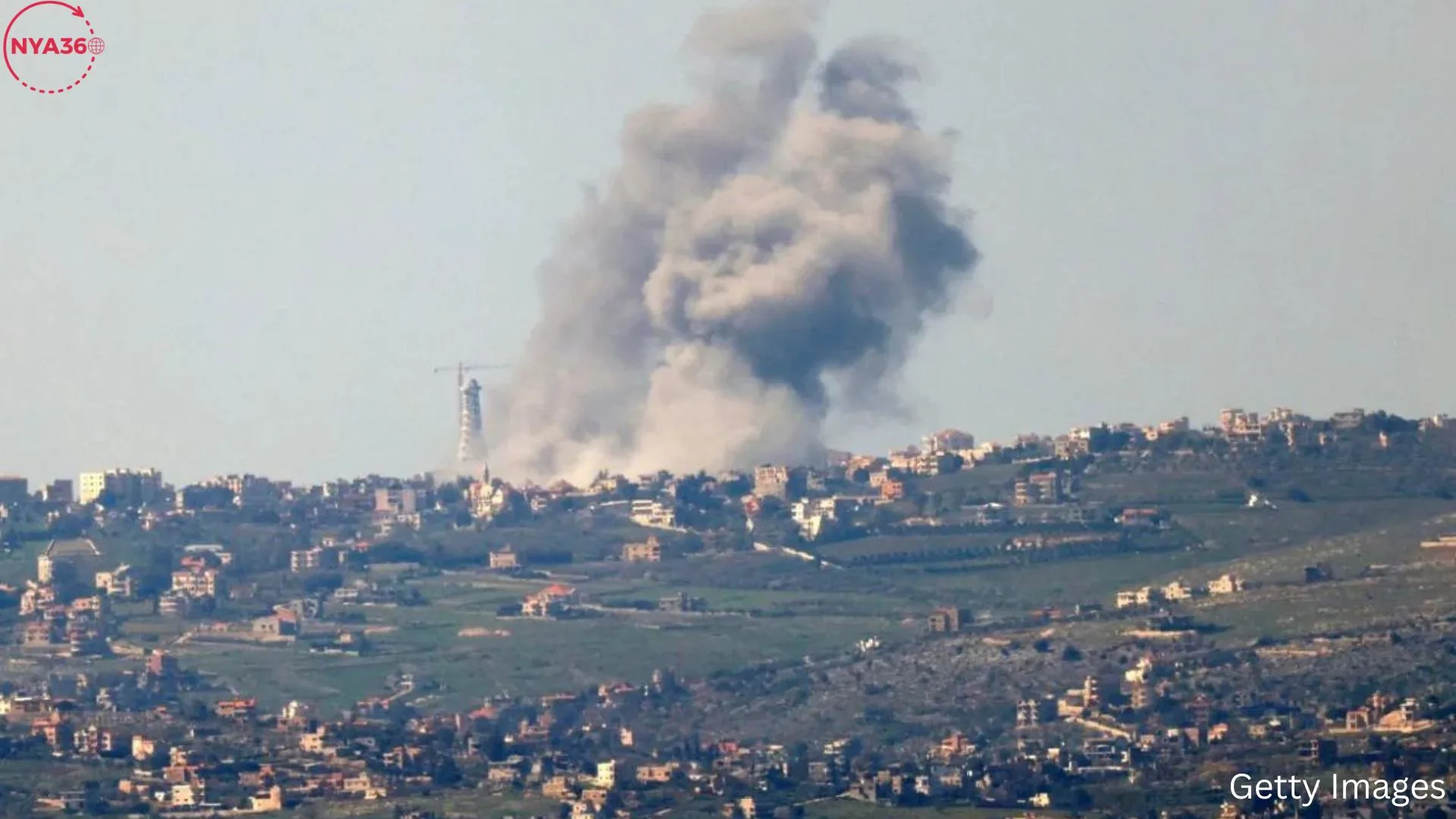Israel just carried out an airstrike on a residence in Beirut, specifically targeting Faoud Shokri, an advisor to Hezbollah leader Hassan Nasrallah. This action represents a notable escalation. This action has created the conditions for possible significant reprisal actions by Hezbollah, a prominent belligerent organization located in Lebanon. The US has positioned an amphibious assault ship with 2,500 marines near Lebanon, causing the situation to quickly escalate into a crucial focal point in Middle Eastern geopolitics. This article explores the consequences of these events, the historical background, and the possible impact on regional stability.
Faoud Shokri, a prominent consultant to Hezbollah’s leader Hassan Nasrallah, has played a crucial role in influencing the group’s strategic and operational methodologies. The significance of Israel’s choice to target him is highlighted by his influence inside Hezbollah. This action is not only seen as a strategic attack but also as a direct provocation to Hezbollah’s leadership hierarchy and its ability to carry out operations.
Throughout history, Hezbollah has consistently demonstrated a willingness to retaliate against Israeli acts of aggression. Hassan Nasrallah, the leader of the group, had already issued a warning about the serious repercussions that would occur if important individuals inside its members were attacked. Due to Shokri’s high profile, it is expected that there will be a powerful and forceful response in retaliation. Possible objectives for Hezbollah encompass prominent urban centers in Israel, such as Haifa or Tel Aviv. Targeting these areas would indicate a progression towards engaging in direct urban warfare, shifting the fight from small-scale border clashes to launching assaults in the heart of Israeli land.
Engaging in such measures would probably incite a substantial military retaliation from Israel, resulting in a large-scale conflict. The possibility of urban warfare in Israeli cities gives rise to concerns regarding civilian losses and the total human toll of this intensifying conflict. Moreover, the potential danger posed to vital infrastructure in these urban areas might have extensive consequences for both the economy and civilian morale in Israel.

The United States’ choice to relocate an amphibious assault ship, housing 2,500 marines, in closer proximity to Lebanon, serves as a distinct indication of its apprehension regarding the intensifying circumstances. This deployment fulfills various strategic objectives. Firstly, it showcases the United States’ endorsement of Israel, reinforcing the robust military and political connections between the two countries. Furthermore, it serves as a deterrence to Hezbollah and other regional actors who may contemplate taking advantage of the situation.
Nevertheless, the existence of the US military also brings forth supplementary hazards. If there is any error in computation or unintentional involvement of US soldiers, it may quickly escalate the conflict on an international scale, attracting other major nations and potentially resulting in a larger regional war. The strategic calculation for the United States will entail maintaining a delicate equilibrium between deterrence and the potential for escalation, to prevent additional acts of aggression while refraining from direct engagement in the conflict.
The Israeli-Hezbollah conflict has a long and complex history, marked by frequent outbreaks of violence in recent decades. The 2006 Lebanon War serves as a clear and powerful warning of the immense destruction that can result from such conflicts. A total of more than 1,000 Lebanese individuals and 160 Israelis lost their lives in that fight, resulting in significant destruction to infrastructure in both countries. The present circumstances resemble the events leading up to the 2006 war, as targeted killings and attacks across borders pose a risk of escalating into a more extensive conflict. The international community, namely the United Nations and influential nations, are expected to advocate for de-escalation to avoid a recurrence of such a catastrophic conflict.

Currently, the situation continues to be extremely unstable. The reaction of Hezbollah will be closely monitored, and any assault on Israeli cities will probably result in a strong military retaliation. Both parties will strive to accomplish their strategic goals while avoiding a large-scale conflict, a precarious equilibrium that is becoming increasingly difficult to uphold. Over time, this escalation underscores the precariousness of peace in the region. This highlights the necessity for continued diplomatic endeavors to tackle the fundamental causes that are fueling the Israeli-Hezbollah conflict. These factors encompass territorial conflicts, political instability in Lebanon, and the wider geopolitical competition involving Iran and other regional powers.
The recent Israeli airstrike in Beirut, specifically targeting Faoud Shokri, signifies a notable intensification in the continuing battle with Hezbollah. As both parties make arrangements for possible reprisals and counter-reprisals, the possibility of a wider regional conflict becomes increasingly significant. The inclusion of US military forces introduces an intricate element to the strategic evaluations, intensifying the risks even further. The upcoming days and weeks will play a crucial role in determining if this crisis can be controlled or if it will escalate into another catastrophic conflict in the Middle East. The international community should promptly engage in mediation efforts to avert additional violence, acknowledging the significant human and geopolitical consequences involved.
Follow us on social media: Instagram, Threads & Twitter X @nya360_ YouTube & Facebook @nya360.





